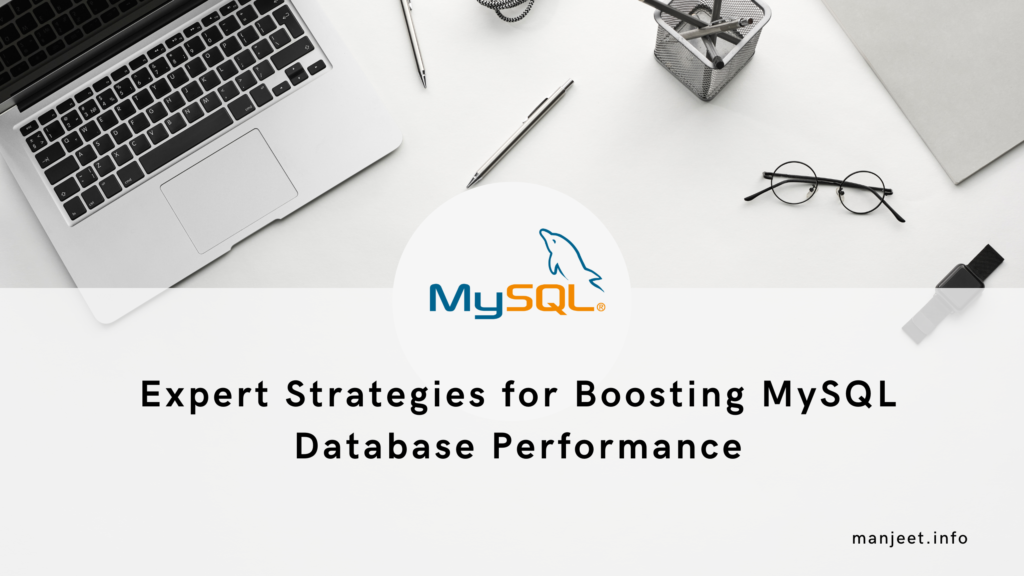MySQL is one of the most widely used relational databases in the world. However, as the amount of data stored in the database grows, its performance can start to suffer. In this article, we will look at some tips and best practices for optimizing MySQL database performance.
Optimizing MySQL Database Performance: Tips and Best Practices
- Optimize your Queries: One of the most important factors in optimizing MySQL database performance is optimizing your queries. You should always ensure that your queries are as efficient as possible. Here are some tips for optimizing your queries:
- Use indexes: Indexes help to speed up your queries by allowing MySQL to find the relevant data more quickly. You should ensure that you have indexes on all columns that are frequently used in queries.
- Use EXPLAIN: EXPLAIN is a command that allows you to see how MySQL executes your queries. By using EXPLAIN, you can identify slow queries and optimize them.
- Use the correct data types: Using the correct data types can help to optimize your queries. For example, using the INT data type for an ID column can be faster than using VARCHAR.
- Optimize your Table Structure: The structure of your tables can also affect the performance of your MySQL database. Here are some tips for optimizing your table structure:
- Normalize your tables: Normalization involves organizing your data into tables in a way that reduces redundancy and dependency. This can help to improve query performance.
- Use the appropriate storage engine: MySQL supports several storage engines, each with its own strengths and weaknesses. You should choose the storage engine that is best suited to your specific requirements.
- Use the correct table type: MySQL supports several table types, including MyISAM and InnoDB. MyISAM is faster for read-heavy applications, while InnoDB is better for write-heavy applications.
- Optimize your Server: The performance of your MySQL database can also be affected by the server on which it is running. Here are some tips for optimizing your server:
- Increase memory: MySQL uses memory to cache data, which can help to improve performance. You should ensure that your server has enough memory to support your database.
- Use a dedicated server: If possible, you should use a dedicated server for your MySQL database. This can help to ensure that your database has all the resources it needs to perform well.
- Optimize your server configuration: You should configure your server to optimize MySQL performance. This may involve adjusting settings such as the buffer pool size, the number of connections, and the query cache size.
- Regular Maintenance: Regular maintenance can help to keep your MySQL database running smoothly. Here are some tips for regular maintenance:
- Optimize your database regularly: You should regularly optimize your database to ensure that it is running as efficiently as possible. This may involve running commands such as ANALYZE TABLE and OPTIMIZE TABLE.
- Monitor your server: You should regularly monitor your server to ensure that it is running smoothly. This may involve monitoring CPU usage, disk usage, and network traffic.
- Back up your database regularly: You should regularly back up your database to ensure that you can recover it in case of a disaster.
Conclusion Optimizing MySQL database performance requires a combination of optimizing queries, optimizing table structure, optimizing the server, and regular maintenance. By following the tips and best practices outlined in this article, you can ensure that your MySQL database performs as efficiently as possible.
Read more about Which Databases are Best for Fast Delivery, and High-Traffic Applications







